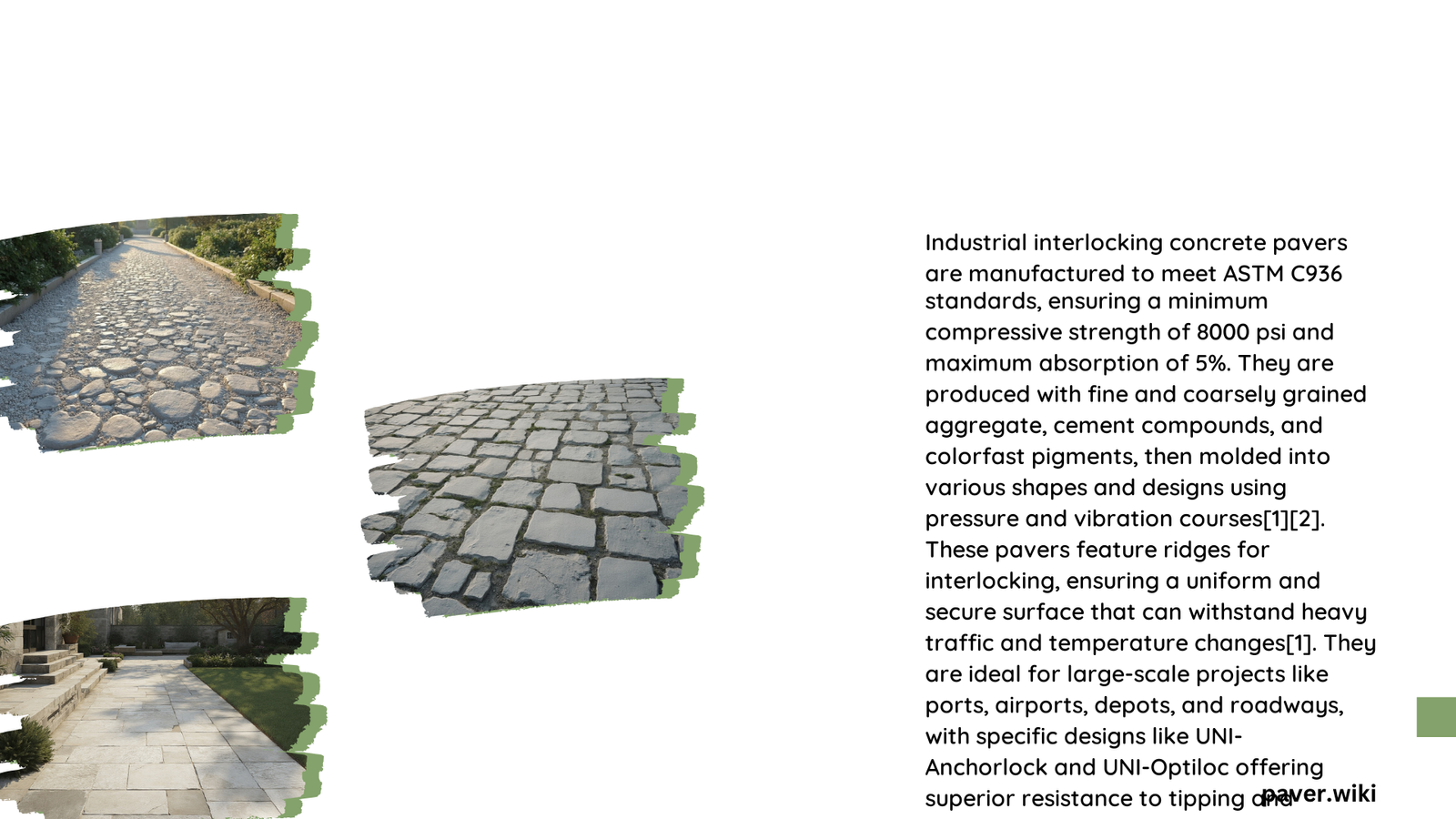Industrial interlocking concrete pavers represent a sophisticated engineering solution for high-traffic areas requiring exceptional durability, load-bearing capacity, and minimal maintenance. These advanced paving systems utilize precision-engineered concrete modules that interlock seamlessly, creating robust surfaces capable of withstanding extreme mechanical stress, environmental challenges, and continuous heavy vehicular movement across industrial landscapes.
What Makes Industrial Interlocking Concrete Pavers Unique?
Industrial interlocking concrete pavers distinguish themselves through several critical characteristics that set them apart from traditional paving methods:
Technical Performance Specifications
| Parameter | Specification | Standard |
|---|---|---|
| Thickness | Minimum 3 ⅛” (80 mm) | ASTM C936 |
| Compressive Strength | 8,500 psi (55 MPa) | U.S. Standards |
| Water Absorption | Less than 5% | Industry Benchmark |
Key Advantages of Industrial Interlocking Concrete Pavers
- Superior Load Distribution
- Engineered to spread weight evenly across surface
- Reduces localized stress points
-
Minimizes potential structural degradation
-
Rapid Installation
- Modular design enables quick deployment
- Minimal downtime during construction
-
Immediate readiness for traffic
-
Long-Term Cost Efficiency
- Reduced maintenance requirements
- Extended service life compared to traditional surfaces
- Lower lifecycle replacement costs
How Are Industrial Interlocking Concrete Pavers Manufactured?

Material Composition
Industrial interlocking concrete pavers are crafted using:
– High-strength concrete mixtures
– Low-absorption aggregates
– Specialized cement formulations
– Precise manufacturing tolerances
Production Process
The manufacturing involves:
– Carefully controlled concrete mixing
– Hydraulic compression molding
– Precision cutting and finishing
– Rigorous quality control testing
What Installation Techniques Ensure Optimal Performance?
Substrate Preparation Strategies
- Comprehensive Site Assessment
- Soil condition evaluation
- Underground utility mapping
-
Load-bearing capacity analysis
-
Base Layer Development
- Compacted aggregate foundations
- Geotextile membrane integration
- Precise grading and leveling
Installation Best Practices
- Use mechanical placement for large areas
- Maintain consistent joint spacing
- Implement robust edge restraint systems
- Utilize professional-grade installation techniques
What Performance Characteristics Define Industrial Pavers?
Environmental Resilience
- Freeze-thaw cycle resistance
- Chemical exposure tolerance
- UV radiation durability
- Minimal surface degradation
Load-Bearing Capabilities
- Supports heavy industrial equipment
- Withstands continuous vehicular traffic
- Maintains structural integrity under extreme conditions
Who Should Consider Industrial Interlocking Concrete Pavers?
Ideal Applications Include:
– Manufacturing facilities
– Logistics and warehousing complexes
– Transportation infrastructure
– Heavy equipment staging areas
– Mining and industrial sites
Certification and Quality Assurance
Industry Standards Compliance
- ICPI (Interlocking Concrete Pavement Institute) certification
- ASTM international standards adherence
- Rigorous third-party testing protocols
Conclusion
Industrial interlocking concrete pavers represent a sophisticated, high-performance paving solution designed to meet the most demanding infrastructure challenges. Their unique engineering, superior materials, and precision manufacturing make them an exceptional choice for critical industrial environments.
